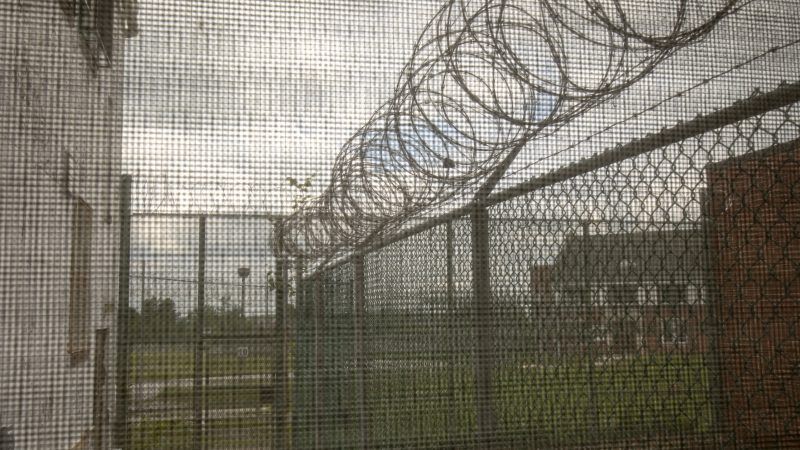Federal Court Confirms That Shackling an Inmate During Exercise Is Cruel and Unusual Punishment
The warden at the center of the case was originally given qualified immunity.

A federal court has ruled yet again that shackling an inmate in full restraints while exercising qualifies as cruel and unusual punishment, and that a warden who allegedly flouted that rule is not protected by qualified immunity.
The U.S. Court of Appeals for the Second Circuit confirmed last week that Angel Quiros, formerly the warden at the Northern Correctional Institute in Somers, Connecticut, violated M.A. Edwards's Eighth Amendment rights when prison officials placed Edwards in restraints during his exercise time over a six-month period. Specifically, Edwards had his "hands cuffed," with "leg irons on [his] ankles" and "a chain tether securing those two sets of restraints to one another."
In 2014, a lower court gave Quiros qualified immunity, the legal doctrine that protects government officials from certain sorts of lawsuits if the alleged misbehavior was not "clearly established" in prior case law. In practical terms, that means courts often acknowledge that a civil servant infringed on a defendant's rights but—without a court precedent—still award that civil servant protection from accountability. (See also: the time the U.S. Court of Appeals for the Ninth Circuit gave qualified immunity to two police officers who stole $225,000 during a search warrant, because no court precedent said that stealing under those specific circumstances was definitively wrong.)
This case initially followed that pattern. The United States District Court for the District of Connecticut ruled that, while every inmate has the right "to recreate free from restraints," this was not a clearly established right.
The Second Circuit countermanded that on appeal, allowing the case to go to a jury, which sided with Edwards in 2018. The district court then turned around and vacated that decision—a fairly uncommon move—maintaining that Quiros only had enough information to know of the violation for a short period of time, as opposed to the entire six months.
On appeal, Quiros raised that same concern, which the court rejected—citing Quiros's own testimony. The warden also challenged the idea that an Eighth Amendment violation occurred at all, arguing that "the plaintiff was not deprived of the ability to attend outdoor recreation and to get fresh air and walk." The Second Circuit wouldn't have it.
"We have described the right at issue as that to 'some opportunity to exercise,'" wrote Judge John M Walker, Jr., "and we cannot determine as a matter of law that the jury erred in finding that Edwards's limited ability to shuffle around in full restraints while breathing fresh air constituted meaningful exercise."
Quiros also argued that safety justified the restraints, thus undermining any constitutional claims. Again, no luck: "The jury was entitled to disagree," wrote Walker. "The safety justification was undermined by testimony from Edwards, credited by the jury, that corrections officers would not always employ the most restrictive shackling method of full restraints when they were moving him out of his cell and around the facility."
Bringing things full circle, Quiros again claimed qualified immunity—the same defense the Second Circuit rejected in 2015, which they again rejected in 2021.
The denial of qualified immunity does not mean a defendant has been found guilty; it merely gives the plaintiff the right to sue. In other words, an official awarded the legal protection is thus spared from facing the possibility of accountability, not accountability itself. The latter comes in the form of a jury's decision—something that, in this case, already came down three years prior.
"The jury reasonably determined, upon sufficient evidence, that Quiros knowingly violated Edwards's clearly established right to meaningful exercise under the circumstances and lacked a sufficient justification for doing so," notes Walker. "We will not disturb the jury's finding that Quiros was not entitled to qualified immunity."
Show Comments (24)